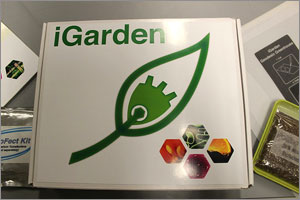What if you could create your own tomato with the perfect mixture of sour and sweet? Amp up the nutritional content in your home-grown lettuce? Tone down the allergens in your strawberry patch? Students working with Wyss Core Faculty member Pam Silver may be taking us one step closer to making such personal modifications possible. Their findings appear in this week’s online issue of the Journal of Biological Engineering.

The team envisioned a toolkit of standardized, modular parts that can be used to grow plants with customizable features introduced through synthetic biology. In addition to a “genetic fence” to prevent the spread of introduced genetic material, this toolkit would include three separate features: flavor elements, knockdown of plant allergens, and modification of petal color. To test this concept, flavor proteins were transferred to a small flowering plant called Arabidopsis that is related to cabbage and mustard. In contrast to previous plant engineering advances that have targeted large-scale agriculture, this new system is designed to meet the small-scale needs of an individual gardener or community group.
The teamÍs research was first presented at the 2010 International Genetically Engineered Machines (iGEM) competition in which students were given a kit of biological parts with which to design and build biological systems and operate them in living cells. Their project, called the Harvard iGarden and cosponsored by the Wyss Institute, was designed to help the non-scientist see the vast potential for applying synthetic biology to daily life.
In addition to Silver, the team was guided by Wyss Core Faculty member George Church. Twenty-one students, teaching fellows, and advisors appear as coauthors on this week’s journal publication. They represent Harvard Medical School, the Department of Molecular and Cellular Biology at Harvard, and Harvard’s Arnold Arboretum.